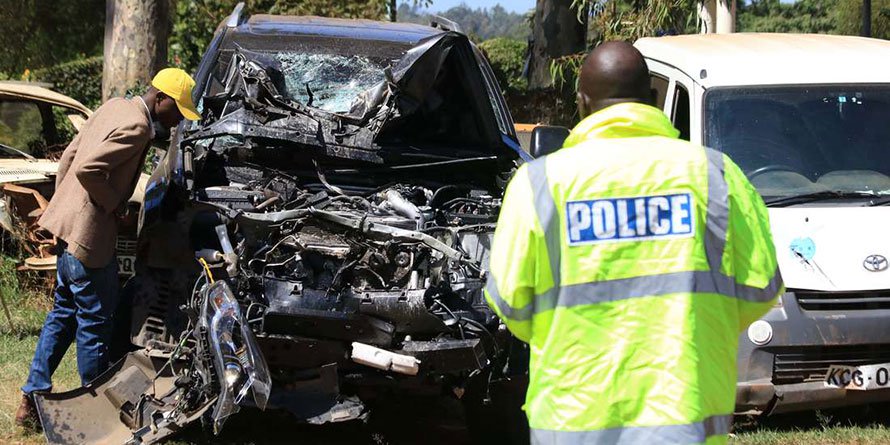As Kenya reels under the devastating effects of road carnage, no end seems to be in sight if recent developments are anything to warn people keen on safety.
Since the year began, 683 people have lost their lives to road accidents according to data released by the National Transport and Safety Authority (NTSA).
This is an increase from the 651 fatalities recorded over similar period in 2018. On the other hand, the number of accidents related inuries has increased from 1,740 by March 2018 to 2,188 this year.
The government has, through various bodies, tried in vain to reduce the number of deaths on our roads through different remedial measures. However, judging by the rate at which accident numbers keep rising, there is a reason to doubt these interventions.
We seem to be trapped in the vicious cycle of doing things in the same manner while expecting different results.
To address the carnage, we need to look beyond measures put in place to prevent accidents and start addressing some of our long ingrained habits that are detrimental to safety. One such habit is vehicle maintenance.
In our attempts to reduce costs and maximise profits, public transporters have opted for the cheapest service providers when servicing their units. However, as the adage goes, cheap is expensive; and the biggest expense Kenyans are paying for the use of cheap maintenance services is the dear lives lost on the roads.
The sale of commercial vehicles – trucks and buses – forms the bulk of brand new purchases in the country.
Manufacturers advise the use of approved service centres for maintenance. Sadly, many public service operators have not keenly followed the servicing advice, opting for own mechanics. All this is an attempt to reduce the costs related to maintenance.
This places the lives of passengers at risk due to the possibility of the vehicles being fitted with substandard parts. The vehicles are also not assessed by trained mechanics, hence putting the quality of service to question.
If we were to borrow a leaf from the airline business, they are strictly required to use approved maintenance centres.Although Boeing manufactures a wide range of planes, maintenance centres only service particular aircraft.For example, if an airline has a Boeing-767, they cannot take it for maintenance at a Boeing-737 centre. Use of unauthorised centre attracts a fine. All this is done to guarantee the safety.This same concept should […]
